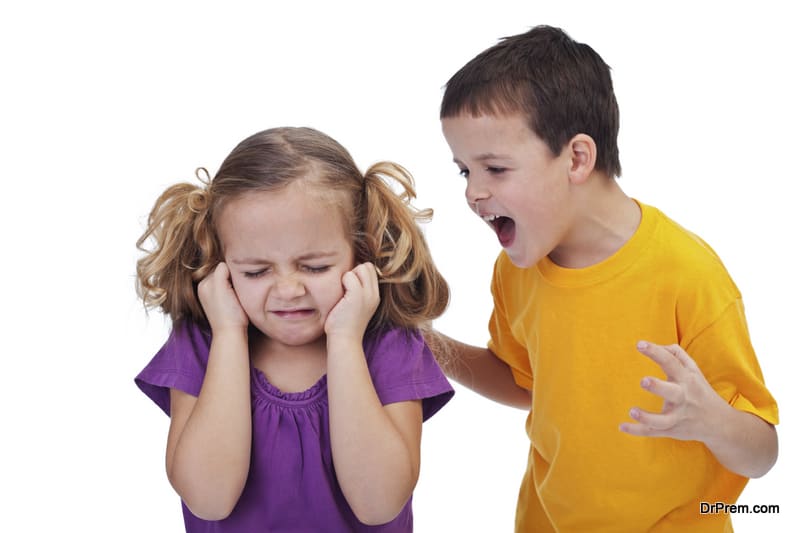Dealing with a child with ODD or Oppositional Defiant Disorder can be quite intimidating and demanding. With some strategies and methods, you can deal with this conduct disorder effectively.
Know the behavioral features
On most of the occasions, ODD goes unnoticed. Most of the parents may see the behavior as mere disobedience and too much aggression. But the anger induced behaviors acted out by a child with ODD is beyond the bounds of any normal child in her/his age group. The disorder is more common with boys than girls. So, if you want to deal with the disorder, then the first thing that you need to do is to know the behavioral features manifested in this disorder. A child with ODD actively refuses to adhere to common rules and deliberately annoys others. Children or adolescents with ODD show too much anger or resentment to others, argue often and blame others. They either don’t have friends or have lost most of their friends. They have constant troubles in school, maybe bullies and seek revenge. The symptoms are manifested over a period of six months.
Evaluating the co-morbid conditions
If your child’s school counselor believes that your child has ODD or if s/he has been diagnosed with the disorder, then the first thing you need to do is to seek a proper psychiatric evaluation. ODD is frequently a co-morbid condition to Attention Deficit Hyperactivity Disorder (ADHD). In such cases, ODD is a symptom of ADHD. So, before you start off any treatment, you must consult a psychiatrist to test your child for any co-morbid conditions like ADHD or dyslexia. If your child has ADHD along with ODD, then s/he might be prescribed medications. Otherwise, your child will have to undergo therapy to deal with the symptoms of ODD.
Family Therapy
Unlike ADHD, ODD is more of an environmental disorder, that is, the disorder is caused due to environmental factors like marital problems between mother and father, family issues, broken homes or school environment. Therefore, to deal with ODD effectively, parents must undergo family therapy. Family Therapy is unique psychological therapy that aims at making changes in the environment through counseling and other behavioral approaches. Addressing marital and family issues can help the parents develop a more warm environment for the child which can help with dealing ODD. Once these issues are addressed, parents can develop newer strategies to deal with the anger and hostility of their child.
Avoiding conflicts
Parents need to be trained to avoid conflicts with their child. Generally, children with ODD try to gain an upper hand on the authority figure like parents to gain control of the situations and emotions. Therefore, parents need to avoid conflicts that may result in quarrelsome behavior. This is particularly difficult as children with ODD will try to start conflicts due to their anger by bringing in issues that can trigger arguments. Most adults will engage in an argument to control the outcome. This in turn will make the child more angry and hostile, thereby the cycle will keep on repeating itself. Therefore, you must have strategies to avoid conflict laden issues. You can divert the subject or you can totally ignore the argument if you think it will escalate into a conflict. Don’t defend or try to convince your child that you are right. This way you can prevent a conflict and anger related hostility of your child.
Don’t lose the control on your emotions
Giving harsh punishment to your child with ODD is never an answer. But at the same time discussing the issue with them may not lead to any positive outcome. It may be frustrating for any parent or a teacher, but you must never lose the control on your emotions by becoming defensive about your actions in front of the child. This is because you too might display your anger towards the child which make your child believe that anger is good and aggression is required during arguments. This way your child will gain control over authority person (any adult). At the same time, it will also trigger anxiety in your child. So, always cut through your arguments using words like ‘regardless’ or ‘nevertheless’.
Utilize effective consequences
Once your child is diagnosed with ODD, s/he must undergo behavioral approaches and cognitive behavior therapy (CBT) that will help her/him to deal with the symptoms and adjust well into the society. In CBT your child will learn new behaviors through positive and negative reinforcement procedures. Apart from this as a parent you must initially decide the consequences of your child’s unacceptable behavior patterns. Discussing the consequences in the middle of a conflict can be quite frustrating for you. So, you must decide the consequences initially so that you enforce them whenever your child performs an unacceptable act. Such consequences must not require cooperation from the child and they must be made really clear to the child along with the rules. You can start by removing reinforcers like T.V., computer, video games, visiting friends, access to favorite clothing etc. Remove these reinforcers if the child shows hostility or anger and give it back as a reward only when s/he repeatedly display positive behavior.
Check out for peer groups
ODD can also be caused by friends or peer group who regularly display anger and hostility. So, see if your child has friends that are older to him or have bullied him previously. Also, observe whether your child’s aggressive behavior increases when s/he is with his school friends or classmates. This will help you understand the triggering factors behind your child’s behavior. At the same time, make your child feel loved. It may be difficult to forget your child’s offensive actions, soothe and calm her/him, but it is crucially important as the child may feel unloved during all this conflict. So, once the argument is over, forget the offenses and don’t discuss about them. Soothing your child during a conflict is not the best idea as a child with ODD will try to control in such a situation. Instead, once the conflict is over, soothe your child and help them get back to an even place. You have to enforce the consequences, but you have to make sure that your child still feels loved and wanted. Dealing with ODD is difficult but with good parenting and proper strategies one can help a child deal with all turmoil and turbulence.






